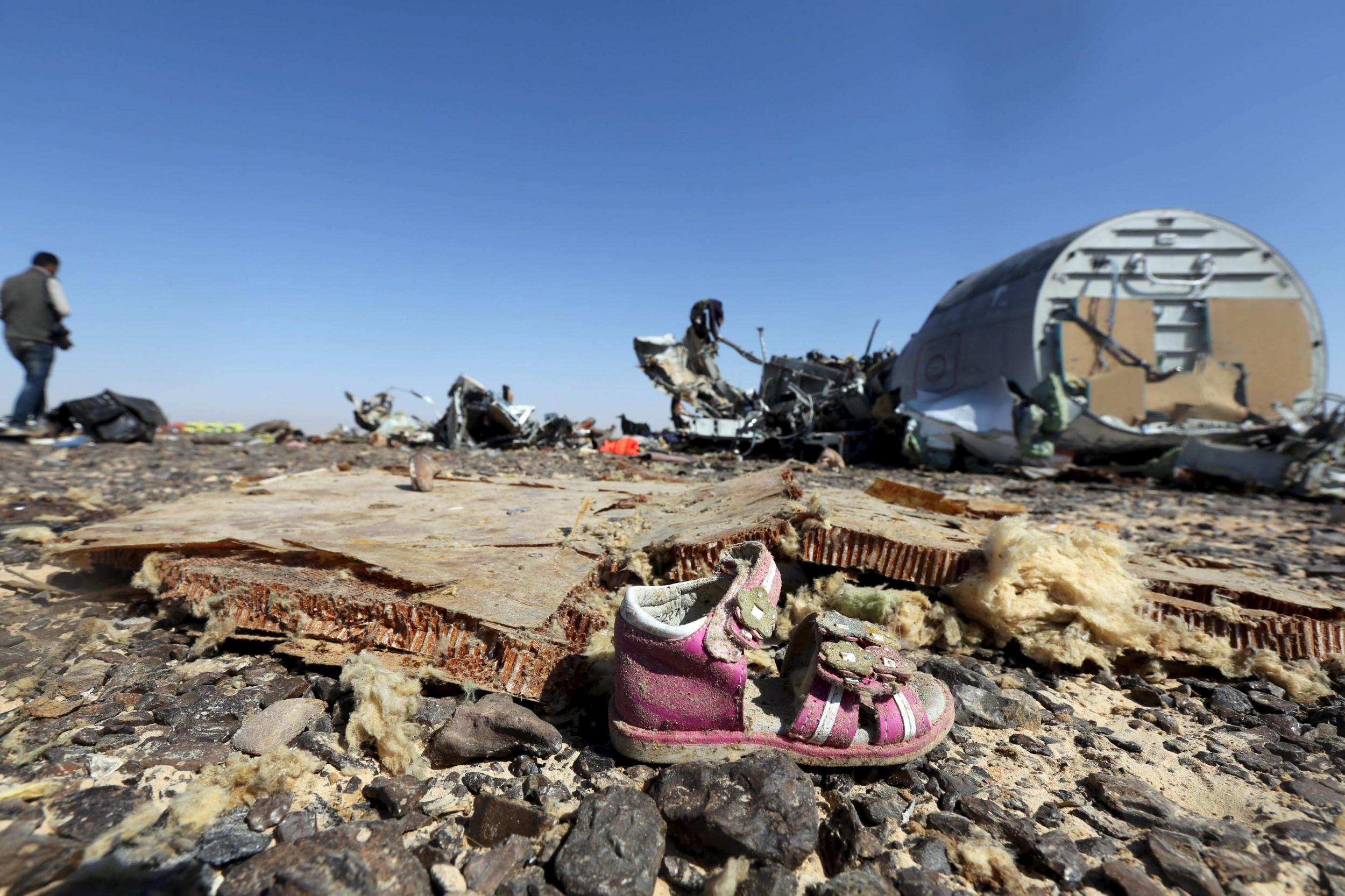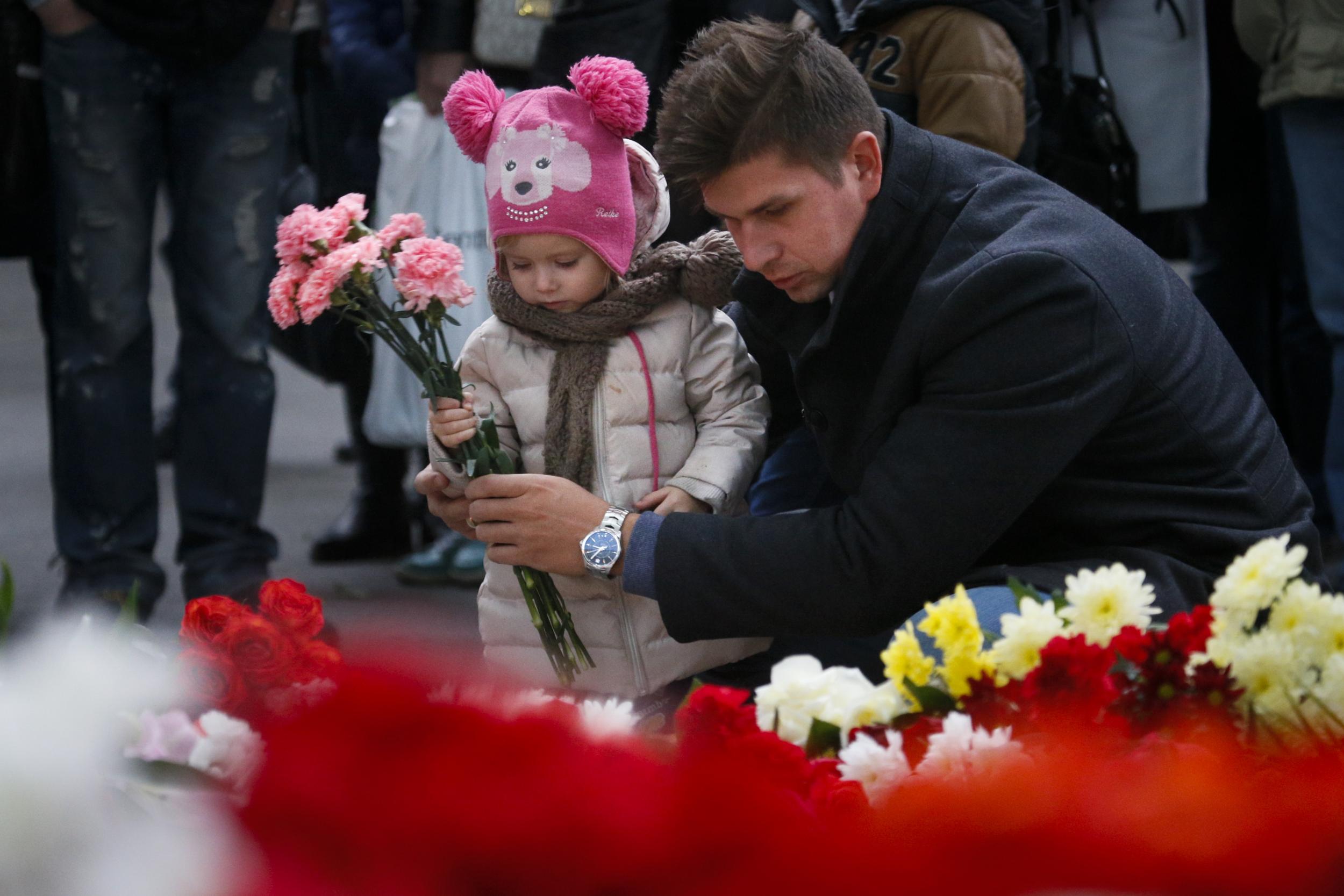Egypt plane crash: Russian airliner 'broke up in mid-air', claims official
The plane reportedly split in two, with one part burning up and the other crashing into a rock.

The Russian airliner that crashed in Egypt - killing 224 people - broke up in mid-air, an official has said.
Victor Sorochenko, head of Russia's Interstate Aviation Committee, said it remains too early to conclude what happened to cause the crash on Saturday.
Speaking after visiting the wreckage site in Sinai, Sorochenko said debris was found spread across a 20 square km area.
Egyptian officials have said some bodies had been recovered within a radius of 5km, but that of a three-year-old girl was found 8km from the site.

One unnamed official told Reuters the plane appeared to have split in two, with one part burning up and the other crashing into a rock.
Wilayat Sinai, an Egyptian jihadist group allied to Isis, has claimed responsibility for the crash, saying it shot the plane out of the sky "in response to Russian airstrikes that killed hundreds of Muslims on Syrian land".
Russian transport minister Maksim Sokolov said the claim "can't be considered accurate" while Egypt's army spokesman has also dismissed it.
According to Egyptian Prime Minister Sharif Ismail, experts have confirmed that the plane could not be downed at the 31,000ft it was cruising at by the kind of weapons the militants are known to have.
President Abdul Fattah al-Sisi has stressed patience, warning that the investigation is a "complicated matter" and could take months.
Isis has yet to provide any images or video proof that it caused the crash.
Questions have also raised over the condition of the plane, with the wife of co-pilot Sergei Trukachev telling Russian state-controlled NTV that "he complained before that the technical condition of the aircraft left much to be desired."
An Egyptian government official said that before the plane lost contact with air traffic controllers, the pilot had radioed in to report technical problems that he said would force him to land at the nearest airport.

At last count 163 bodies had been recovered from the wreckage of the Metrojet flight, which had been en route from popular Red Sea resort Sharm el-Sheikh to St Petersburg.
A number of airlines - Emirates, Air France-KLM and Lufthansa - have said they will not fly over the Sinai Peninsula until more information is available; two smaller carriers will also reroute flights.
With 224 fatalities in total, almost all of which were Russians, the Egypt crash represents the worst air disaster the country has ever suffered.
It is observing a day of mourning.
Join our commenting forum
Join thought-provoking conversations, follow other Independent readers and see their replies
Comments
Bookmark popover
Removed from bookmarks